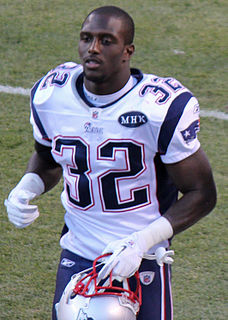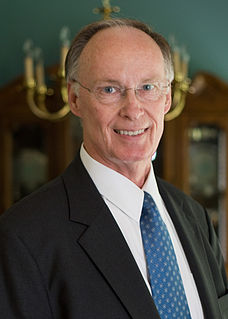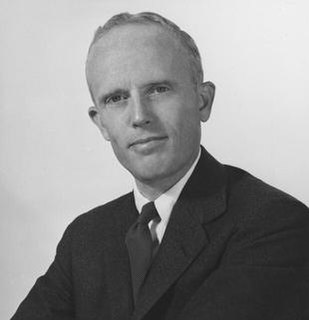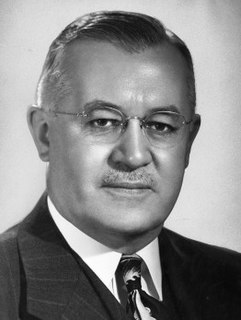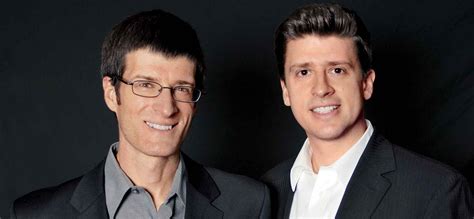Top 1200 Knowledge Gained Quotes & Sayings - Page 3
Explore popular Knowledge Gained quotes.
Last updated on April 20, 2025.
I think that every guy who has come through New England would say that he gained a lot of knowledge and experience that made him a better football player. But they also learned what it means to be a better teammate, a better husband and a better father. I think cultivating that kind of atmosphere is something we take a lot of pride in here.
It's a new day! Let go of old issues, relationships, or apprehensions that are holding you back. Decide to move forward using the knowledge you've gained, from your failures and triumphs, while making room for new accomplishments .
Cleaning isn't just good for your house, it's healthy for your mind. Adopt the attitude that you can and will achieve your dreams, because it's true. You have greatness within you!
Among the numerous requisites that must concur to complete an author, few are of more importance than an early entrance into the living world. The seed of knowledge may be planted in solitude, but must be cultivated in public. Argumentation may be taught in colleges, and theories formed in retirement; but the artifice of embellishment and the powers of attraction can be gained only by a general converse.
The environmental crisis is somber evidence of an insidious fraud hidden in the vaunted productivity and wealth of modern, technology-based society. This wealth has been gained by rapid short-term exploitation of the environmental system, but it has blindly accumulated a debt to nature-a debt so large and so pervasive that in the next generation it may, if unpaid, wipe out most of the wealth it has gained us.
First, my people must be taught the knowledge of self. Then and only then will they be able to under-stand others and that which surrounds them. Anyone who does not have a knowledge of self is considered a victim of either amnesia or unconsciousness and is not very competent. The lack of knowledge of self is a prevailing condition among my people here in America. Gaining the knowledge of self makes us unite into a great unity. Knowledge of self makes you take on the great virtue of learning.
In mysticism, knowledge cannot be separated from a certain way of life which becomes its living manifestation. To acquire mystical knowledge means to undergo a transformation; one could even say that the knowledge is the transformation. Scientific knowledge, on the other hand, can often stay abstract and theoretical. Thus most of today’s physicists do not seem to realize the philosophical, cultural and spiritual implications of their theories.
It's very important to distinguish between what most people in the West think about knowledge, and what the Indian concept of knowledge is. In the West the knowledge is something that is tangible, is material, it is something that can be transferred easily, can be bought and sold; or as in India real knowledge is something that is a living being - is a Vidya.
Everyone recognizes a distinction between knowledge and wisdom. . . Wisdom is a kind of knowledge. It is knowledge of the nature, career, and consequences of human values. Since these cannot be separated from the human organism and the social scene, the moral ways of man cannot be understood without knowledge of the ways of things and institutions.
My interest only is trying to help the lives of the people of this state, try to educate people and create jobs. It's not even for me. I've never gained anything. I don't even take a salary. I've never gained anything from being here except for the joy and the privilege of serving the people of this state.
The Christian religion, [Pascal] claims, teaches two truths: that there is a God who men are capable of knowing, and that there is an element of corruption in men that renders them unworthy of God. Knowledge of God without knowledge of man's wretchedness begets pride, and knowledge of man's wretchedness without knowledge of God begets despair, but knowledge of Jesus Christ furnishes man knowledge of both simultaneously.
Despite popular theories, I believe people fall in love based not on good looks or fate but on knowledge. Either they are amazed by something a beloved knows that they themselves do not know; or they discover a common rare knowledge; or they can supply knowledge to someone who's lacking. Hasn't everyone found a strange ignorance in someone beguiling? . . .Nowadays, trendy librarians, wanting to be important, say, Knowledge is power. I know better. Knowledge is love.
This society in which knowledge workers dominate is in danger of a new "class conflict" between the large minority of knowledge workers and the majority of workers who will make their livings through traditional ways, either by manual work... or by service work. The productivity of knowledge work - still abysmally low - will predictably become the economic challenge of the knowledge society. On it will depend the ability of the knowledge society to give decent incomes, and with them dignity and status, to non knowledge people.
Now I wonder what our knowledge has in common with God's knowledge according to those who treat God's knowledge... Is there anything else common to both besides the mere name? ...there is an essential distinction between His knowledge and ours, like the distinction between the substance of the heavens and that of the earth.
The goal of mankind is knowledge ... Now this knowledge is inherent in man. No knowledge comes from outside: it is all inside. What we say a man 'knows', should, in strict psychological language, be what he 'discovers' or 'unveils'; what man 'learns' is really what he discovers by taking the cover off his own soul, which is a mine of infinite knowledge.
In order to arrive at knowledge of the motions of birds in the air, it is first necessary to acquire knowledge of the winds, which we will prove by the motions of water in itself, and this knowledge will be a step enabling us to arrive at the knowledge of beings that fly between the air and the wind.
Neither theological knowledge nor social action alone is enough to keep us in love with Christ unless both are proceeded by a personal encounter with Him. Theological insights are gained not only from between two covers of a book, but from two bent knees before an altar. The Holy Hour becomes like an oxygen tank to revive the breath of the Holy Spirit in the midst of the foul and fetid atmosphere of the world
So the problem in the West is that, especially in places like the USA, a person will obtain this much knowledge and immediately think that they have a large amount of knowledge. And then start to act on the basis of what they think, they posses. Instead of having this much knowledge and realizing that in fact this is only this much knowledge and the amount of where you can go there is where you came is much bigger than where you've already gotten.
To oppose knowledge is ignorant, and he who detests knowledge and science is not a man, but rather an animal without intelligence. For knowledge is light, life, felicity, perfection, beauty and the means of approaching the Threshold of Unity. It is the honor and glory of the world of humanity, and the greatest bounty of God. Knowledge is identical with guidance, and ignorance is real error
Patience is a virtue, but there comes a moment when you must stop being patient and take the day by the throat and shake it. If it fights back; fine. I'd rather end up bloody at the end of the day, then unhurt with no progress made, no knowledge gained. I'd rather have a no, then nothing. I'd forgotten that about myself.
There is no such thing as originality. It has all been said before, suffered before. If a person knows that, is it any wonder love becomes mechanical and death just a scene to be shunned? There is no absolute knowledge to be gained from either. Just another ride on the merry-go-round, another blurred scene of faces smiling and faces grieved.
I feel that all knowledge should be in the free-trade zone. Your knowledge, my knowledge, everybody's knowledge should be made use of. I think people who refuse to use other people's knowledge are making a big mistake. Those who refuse to share their knowledge with other people are making a great mistake, because we need it all. I don't have any problem about ideas I got from other people. If I find them useful, I'll just ease them right in and make them my own.
Each member of society can have only a small fraction of the knowledge possessed by all, and...each is therefore ignorant of most of the facts on which the working of society rests...civilization rests on the fact that we all benefit from knowledge which we do not possess. And one of the ways in which civilization helps us to overcome that limitation on the extent of individual knowledge is by conquering intelligence, not by the acquisition of more knowledge, but by the utilization of knowledge which is and which remains widely dispersed among individuals.
Let us keep before us the fact that, almost without exception, every race or nation that has ever got upon its feet has done so through struggle and trial and persecution; and that out of this very resistance to wrong, out of the struggle against odds, they have gained strength, self-confidence, and experience which they could not have gained in any other way.
We must remember that the GOAL of prayer is the ear of God. Unless that is gained, the prayer has utterly failed. The uttering of it may have kindled devotional feeling in our minds, the hearing of it may have comforted and strengthened the hearts of those with whom we have prayed, but if the prayer has not gained the heart of God, it has failed in its essential purpose.
Doubt is the vestibule which all must pass before they can enter into the temple of wisdom; therefore, when we are in doubt and puzzle out the truth by our own exertions, we have gained a something that will stay by us, and which will serve us again. But, if to avoid the trouble of the search we avail ourselves of the superior information of a friend, such knowledge will not remain with us; we have not bought but borrowed it.
Knowledge is power." Rather, knowledge is happiness, because to have knowledge - broad, deep knowledge - is to know true ends from false, and lofty things from low. To know the thoughts and deeds that have marked man's progress is to feel the great heart-throbs of humanity through the centuries; and if one does not feel in these pulsations a heavenward striving, one must indeed be deaf to the harmonies of life.


